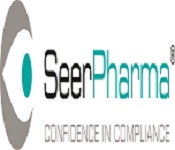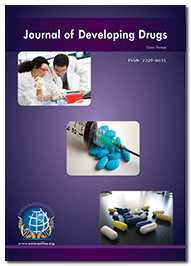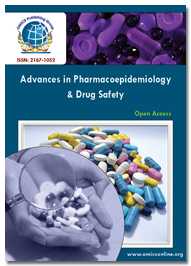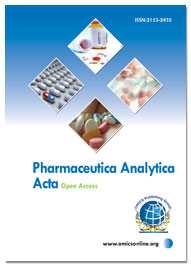Theme: New Paradigm Approach for Manufacturing Excellence and Quality Standards
GMP Summit 2015
Dr. Sunil Kumar Verma
India is one of the top six countries that have achieved eminent global position in pharma sector. The Indian pharmaceutical market is third largest in term of volume and valued at Rs 750 bn for the year ending of March 2014. There are over 3000 pharma companies in India with approximately 10,500 manufacturing units. According to an estimate, India produces 70 per cent of the WHO demand for DPT & BCG and 90 per cent of measles vaccine and export to 150 countries. Approximately 70 per cent of the patients in developing countries receive Indian medicines through various NGOs. The country’s pharmaceutical industry accounts for about 1.4 per cent of the global pharmaceutical industry in value terms and 10 per cent in volume terms. Furthermore, the Indian pharma market size is expected to grow to US$ 85 billion by 2020.
Going forward, better growth and value of Indian Pharma companies in world market will depend on the abilities of companies to align with the Global GMP standards. This will not only be necessary for the sustainable growth of Indian Pharma sector, but also for enhancing the quality of life of those large numbers of patients world-wide who largely consume the Indian medicines.
GMP Summit-2015 thrusts to precisely discuss upon the issues of GMP, GCP and quality control in the pharmaceutical industry for a better world. This Summit would not only bring together the national and international players of phama sector, researchers, entrepreneurs, and other stack holders at a common platform but also would provide a unique opportunity to the policy makers to understand the current trends.
Finally, we hope that the GMP Summit-2015 would be a successful and meaningful event to advance the country towards the 'Pharma Vision 2020' of Government of India aiming at making India a global leader in end-to-end drug manufacture.
Best Regards,
Dr Sunil Kumar Verma
D.Phil (Medical Oncology, University of oxford)
Center For Cellular and Molecular Biology,
Hyderabad, India
The OMICS International Pharmaceutical Conferences covers on all aspects of the pharmaceutical sciences, manufacturing, quality with strong emphasis on originality and scientific quality. OMICS International is currently bringing forth the 4th International Summit on GMP, GCP & Quality Control to be held from Oct 26-28, 2015 at Hyderabad, India.
The main theme of the conference is “New Paradigm Approach for Manufacturing Excellence and Quality Standards”.
OMICS International Organizes 300+ Conferences Every Year across USA, Europe & Asia with support from 1000 more scientific societies and Publishes 500+ Open access journals which contains over 50000 eminent personalities, reputed scientists as editorial board members. To know more about the conference series visit: http://www.conferenceseries.com/
GMP conferences will provide a broad ranging platform for informative and interactive discussions with contributions by recognized experts from:
- Industry
- Regulatory Authority
- Academia
Indian Pharmaceutical Industry is one of the largest and most advanced among the developing countries.
- 3rd largest pharmaceuticals market by 2020.
- 20% of global exports in generics.
- USD 45 Billion in revenue by 2020.
- USD 26.1 Billion in generics by 2016.
- USD 200 Billion to be spent on infrastructure by 2024.
- 49% of all drug master filings registered in the USA.
Statistics:
- The country’s pharmaceuticals industry accounts for about 2.4% of the global pharma industry by value and 10% by volume.
- Industry revenues are expected to expand at a CAGR of 12.1% during 2012-20 and reach USD 45 Billion.
- The healthcare sector in India is expected to grow to USD 250 Billion by 2020 from USD 65 Billion currently.
- The generics market is expected to grow to USD 26.1 Billion by 2016 from USD 11.3 Billion in 2011.
GMP GCP conferences aim to ensure that the products are consistently produced and controlled according to quality standards.
PHARMA MANUFACTURING EXPO:
Pharma Manufacturing Expo will be held in conjunction with GMP & GCP Summit 2015, one of the worlds most respected and successful pharma conference. We are delighted to announce an all-new trade show: Pharma Manufacturing Expo held on Oct 26-28, 2015 in Hyderabad, India. Pharma Manufacturing Expo will give an opportunity to showcase your innovation in front of the world. GMP GCP Summit will present the opportunity to see and compare new and emerging technologies, processing and packaging equipment and other products and services that advance the pharma manufacturing industry.
Track-1: Good Manufacturing Practices: The Gap Within
Good Manufacturing Practice is that part of quality management which ensures that products are consistently produced and controlled according to the quality standards appropriate to their intended use and as required by the marketing authorization, clinical trial authorization or product specification. Good Manufacturing practices conference aims at both production and QC. Fact about Current Good Manufacturing Practices (cGMP) is aimed primarily at managing and minimizing the risks inherent in pharmaceutical manufacture to ensure the quality, safety and efficacy of products. FDA regulates the quality of pharmaceuticals very carefully. Current Trends in the FDA is the main regulatory standard for ensuring pharmaceutical quality. GMP for OTC and Cosmetic products is also necessary to ensure consumers that the products they take are safe and effective. Good Automated Manufacturing Practice (GAMP) is a system for producing quality equipment using the concept of prospective validation following a life cycle model which is specifically designed to aid suppliers and users in the pharmaceutical industry. GMP Quality Audits are necessary for assessment of self-inspection in the regulatory aspects of GLP/GCP interface.
Track-2: Current Regulations and Quality Standards
Roles of pharmaceutical inspection convention and co-operation scheme (PIC/S) are to improve co-operation in the field of Good Manufacturing Practices between regulatory authorities and the pharmaceutical industry. The FDA regulations and CFR are responsible for protecting and promoting public health through the regulation and supervision of all the products available in the market to ensure patient compliance. EU-GMP guidelines are needed to maintain the quality which is stricter when compared to WHO-GMP guidelines. As the global market for pharmaceutical products is expanding, the need for companies to understand the international regulatory affairs in developing countries is becoming more critical. Importance of audit in pharmaceutical industry: Auditing has become one of the important key for the success of a pharmaceutical company. Regulatory agencies play a very important role in the pharmaceutical companies by assuring the good quality so that safe and effective product should be delivered to the public.
Track-3: Current GMP guidelines (cGMP)
GMP for active pharmaceutical products are required so that all manufacturing processes are clearly defined, systematically reviewed for associated risks in the light of scientific knowledge and experience, and shown to be capable of consistently manufacturing pharmaceutical products of the required quality that comply with their specifications. GMP for biotechnological products and GMP for biopharmaceuticals are intended to serves as evidence that the manufacturing process changes will not have an adverse impact on the quality, safety and efficacy of the drug product. Licensing in pharmaceutical production is given only after doing pre-audit, post- audit of the area to ensure proper surveillance. cGMP Summit is aimed to maintain the product compliance of Biologics and Medical Devices.
Track-4: The role of “C” in cGMP
cGMPs provide for systems that assure proper design, monitoring, and control of manufacturing processes and facilities. The role of qualified person and quality indicators is to establish and maintain high quality standards. Maintenance, calibration and validation of equipment are to be done regularly to ensure Reliability and reproducibility of processes which are indeed required to assure quality. Quality management systems ensure that all requirements have been documented within the management system in the appropriate location in terms of defined specific system requirements.
Track-5: Good Clinical Practices and Good Laboratory Practices
The role of ICH in designing GCP principles is to provide an ethical treatment to the subjects who are involved in the clinical trials. OECD guidelines for the testing of chemicals are used for studies involving in vitro test systems to obtain data on the safety of chemicals with respect to human health and the environment. Conference on GCP is important because it is an international ethical and scientific quality standard for designing, conducting, recording and reporting trials that involve the participation of human subjects. The GLP Principles describe requirements for and provide general guidance on the conduct of all nonclinical health and environmental safety studies, including invitro studies. Pre-clinical trials assess the toxicity of a drug and examine its potential effects on the human body. These trials are conducted in-vitro which is required to proceed with clinical trials. Good laboratory practices should be followed for these pre-clinical trials.
Track-6: Quality Control
The role of Quality Impact Assessment & effectiveness checks is an essential operation of the pharmaceutical industry. Microbial contaminants can enter a bio manufacturing production system and impact the product outcomes. Microbiology Quality Control Technicians are responsible for assuring quality of the product through all day-to-day operations. They assist the bio manufacturing plant by evaluating raw materials, other supplies and the finished, packaged product. They ensure compliance to common Good Manufacturing Practices. They calibrate and maintain microbiology laboratory equipment; compile and analyze data for documentation; and prepare related reports. They revise and update SOPs as necessary. Ensuring quality control in food processing and textile industry leads towards the betterment of the customer life by meeting the certain standards of quality. Analytical quality control refers to all those processes and procedures designed to ensure that the results of laboratory analysis are consistent, comparable, and accurate and within specified limits of precision. The purpose of stability testing of drugs is to provide evidence on how the quality of an active substance or pharmaceutical product. Corrective and preventive actions are improvements to an organization's processes taken to eliminate causes of non-conformities or other undesirable situations. CAPA is a concept within good manufacturing practice (GMP), and numerous ISO business standards. To Perform Quality Control process of Project Management several quality control tools and software’s are required. Quality control also plays a major role in analytical method development so it would be great to attend the quality control summit.
Track-7: Quality Assurance
Quality risk management that can be applied to all aspects of pharmaceutical quality including development, manufacturing, distribution, and the inspection and submission/review processes throughout the lifecycle of drug substances and drug (medicinal) products, biological and biotechnological products, including the use of raw materials, solvents, excipients, packaging and labeling materials. A robust audit program is a key stone of an effective Quality System. Total Quality Management is very important for pharmaceutical industries to produce the better product and ensure the maximum safety of healthcare system and also protect waste of money for both government & individual consumers. Quality assurance conferences aims at the need for Effective Internal and External Quality Assurance Auditing and it is required, by all active pharmaceutical ingredient (API)/bulk pharmaceutical chemical, medical device and finished pharmaceutical cGMP regulations published worldwide. Quality by Design principles have been used to advance product and process quality in every industry. Quality assurance testing is done by using software called Quality Metrics.
Track-8: Validation
Validation is an integral part of quality assurance; it involves the systematic study of systems, facilities and processes aimed at determining whether they perform their intended functions adequately and consistently as specified. The Major Phases of validation include Pre validation, Process Validation and Validation maintenance Phase. Cleaning validation is documented proof that one can consistently and effectively clean a system or equipment items. The objective of validation of an analytical procedure is to demonstrate that it is suitable for its intended purpose. There are three core phases of HVAC system validation: installation qualification (IQ), operational qualification (OQ), and performance qualification (PQ). An important element of successful HVAC validation is prevalidation design work. Change control within quality management systems (QMS) is a formal process used to ensure that changes to a product or system are introduced in a controlled and coordinated manner. It reduces the possibility that unnecessary changes will be introduced to a system without forethought, introducing faults into the system or undoing changes made by other users of software. Computer system validation (CSV) is the documented process of assuring that a computer system does exactly what it is designed to do in a consistent and reproducible manner. The validation process begins with the system proposal/requirements definition and continues until system retirement and retention of the e-records based on regulatory rules.
Track-9: Contract & Sterile/Aseptic Manufacturing
Traditional role of Contract manufacturing, also known as outsource manufacturing, is to produce one or more components of a final product in which a company relies on the skills of specialist manufacturers. SixSigma is a long-term, forward-thinking initiative designed to fundamentally change the way corporations do business. It is first and foremost "a business process that enables companies to increase profits dramatically by streamlining operations, improving quality, and eliminating defects or mistakes in everything a company does. While traditional quality programs have focused on detecting and correcting defects, Six Sigma encompasses something broader: It provides specific methods to re-create the process itself so that defects are never produced in the first place. Microbiological basics, Sterilization processes & Environmental monitoring is done in aseptic manufacturing. Requirements for successful contract manufacturing partnerships are studied.
Track-10: Storage, Distribution, Transportation
Cold chain storage is a temperature-controlled supply chain. An unbroken cold chain is an uninterrupted series of storage and distribution activities which maintain a given temperature range. It is used to help extend and ensure the shelf life of products such as fresh agricultural produce, seafood, frozen food, photographic film, chemicals and pharmaceutical drugs. Such products, during transport and when in transient storage, are called cool cargo. Manufacturing Execution Systems (MES) are computerized systems used in manufacturing. MES Systems track and document the transformation of raw materials through finished goods. MES can provide the right information at the right time and show the manufacturing decision maker "how the current conditions on the plant floor can be optimized to improve production output." MES work in real time to enable the control of multiple elements of the production process. Good distribution practice (GDP) deals with the guidelines for the proper distribution of medicinal products for human use. GDP is a quality warranty system, which includes requirements for purchase, receiving, storage and export of drugs intended for human consumption. Supply Chain integrity, enable qualified firms to expedite the importation of active pharmaceutical ingredients and finished drug products.
Track-11: Formulation development
The importance of proper pre-formulation prior to the customer's formal drug formulation program helps ensure drug development & commercialization success. Formulation development is to be done only after successful completion of pre-formulation studies.
Optimization of existing formulations is required to create new products, Reduce costs, to capitalize on trends with greater profitability, novel formulations for improved delivery of existing dosage forms, to quickly recalculate formulations based on defined criteria, to create compliant products faster by using existing validated formulas. Product/Process optimization is the practice of making changes or adjustments to a process such as Conjoint Analysis, typically used in industrial process optimization. Physico-chemical testing is done to prevent any contamination. In development for a batch manufacturing there will be three scale-up processes. After the completion of method it will be sent for technology transfers.
Track-12: GMP in food industry
The Quality control in typical food processing has a significant role in assuming a high quality, safe and nutritious food supply for the public, for their good health and for the economic benefits derived from trade of safe and high quality food. Quality control conference also plays a major role in food industry. Hazard Analysis & Critical Control Points (HACCP) is a management system in which food safety is addressed through the analysis and control of biological, chemical, and physical hazards from raw material production, procurement and handling, to manufacturing, distribution and consumption of the finished product. It is important to realize that application of validation principle includes a wide array of activities in two major areas, efficacy and verification of compliance. The Federal Food, Drug, and Cosmetic Act is a set of laws passed by Congress giving authority to the U.S. Food and Drug Administration (FDA) to oversee the safety of food, drugs, and cosmetics. Cleaning, disinfection and hygiene should be strictly maintained in food industry.
Track-13: GMP in Microbiology and Biotechnology
Microbiological Assay is defined as the determination or estimation of concentration or potency of an antibiotic by means of measuring and comparing the area of zone of inhibition or turbidity produced by test substance with that of standard over a suitable microbe under standard conditions. FDA 510k Testing regulation is found in 21 CFR 807 includes information required in a 510(k). The 510(k) is not a form. Cleaning, disinfection and hygiene should be strictly maintained in Microbiology and Biotechnology.
Conference Highlights
- Good Manufacturing Practices: The Gap within
- Current Regulations and Quality Standards
- Current GMP Guidelines (cGMP)
- The Role of 'c' in cGMP
- Good Clinical Practices & Good Laboratory Practices
- Quality Control
- Quality Assurance
- Validation
- Contract & Sterile/Aseptic Manufacturing
- Storage, Distribution, Transportation
- Formulation Development
- GMP in Food Industry
- GMP in Microbiology and Biotechnology
To share your views and research, please click here to register for the Conference.
To Collaborate Scientific Professionals around the World
| Conference Date | October 26-28, 2015 | ||
| Sponsors & Exhibitors |
|
||
| Speaker Opportunity Closed | Day 1 | Day 2 | Day 3 |
| Poster Opportunity Closed | Click Here to View | ||
Useful Links
Special Issues
All accepted abstracts will be published in respective Our International Journals.
- Journal of Developing Drugs: Open Access
- Advances in Pharmacoepidemiology & Drug Safety
- Pharmaceutica Analytica Acta
Abstracts will be provided with Digital Object Identifier by
































